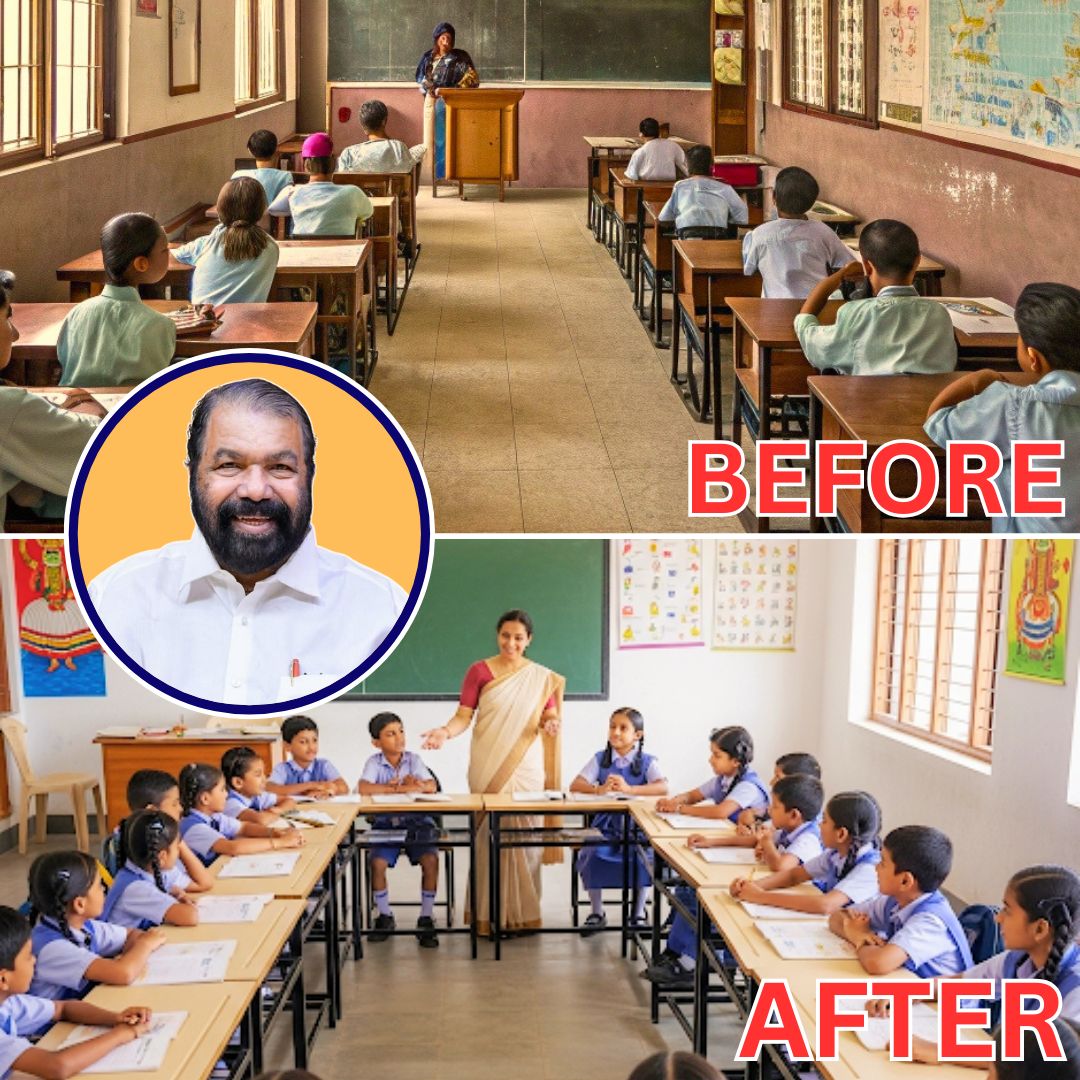Kerala is taking a pioneering step to eliminate the concept of ‘backbenchers’ in government schools, as the state’s Education Minister V Sivankutty has announced the formation of an expert committee to devise new classroom seating arrangements.
The initiative, publicised via his Facebook post, seeks to address the negative impact of traditional row-wise seating, which is believed to undermine some students’ confidence and learning outcomes.
The decision has garnered significant attention and generally positive feedback from educators, parents, and child development experts.
Early trials of inclusive, reform-driven layouts are underway in select schools, marking the beginning of a systematic overhaul of Kerala’s classroom culture.
Transforming Classrooms for Student Confidence
The government’s move has been welcomed as a step towards building classrooms where every student feels seen, valued, and confident to participate. Minister Sivankutty noted, “We aim to ensure equal opportunities for all children and guarantee that no child is left behind in studies or in life.”
By challenging the age-old practice of assigning students to the ‘backbenches,’ often resulting in reduced teacher interaction and unintended social stigma, the committee is expected to study global best practices and recommend seating plans such as U-shaped or circular arrangements.
Schools like Rama Vilasom Vocational Higher Secondary School in Thiruvananthapuram have already piloted new layouts with notable improvements: students appear more engaged, and class participation has reportedly increased. Teachers are hopeful that this shift will encourage inclusivity and diminish the classroom hierarchy that often affects less outspoken children.
Building on Public Dialogue and Cultural Inspiration
The catalyst for this decisive action was the recent Malayalam film ‘Sthanarthi Sreekuttan,’ which resonated widely with the public by depicting how the ‘backbencher’ label can harm a student’s confidence and opportunities.
The film invigorated societal debate, sparking a movement among teachers and school administrators to reconsider and reimagine classroom design. In tandem, parents and child rights activists have applauded the state for responding proactively to cultural conversations and aligning educational practice with modern, child-centric values.
Internationally, several countries have already adopted seating systems that encourage interaction, focus, and cooperation, reinforcing Kerala’s decision as a forward-looking one that places students’ well-being above archaic conventions.
A Framework for Sustainable Change
The newly constituted expert committee will consult widely, examining infrastructure limitations, pedagogical goals, and the local context to propose practical, scalable solutions.
The Kerala government is also actively soliciting feedback from educators and the wider community to ensure the transition enhances teaching and learning without causing disruption.
Recent pilot initiatives have provided useful evidence students positioned in alternative seating formats tend to engage more actively, display higher self-confidence, and benefit from more equitable teacher attention.
Policymakers are aware that successful implementation relies on gradual adoption, appropriate teacher training, and continuous assessment to identify what works best for Kerala’s diverse classrooms.
The Logical Indian’s Perspective
Kerala’s bold initiative demonstrates a deep respect for the dignity and potential of every child. By breaking away from outdated systems and actively involving stakeholders in the reform process, the state is setting a powerful example in promoting equality, emotional well-being, and academic opportunity.
At The Logical Indian, we believe that positive change in education starts when we challenge practices that subtly segregate or demotivate learners. This is not only a win for Kerala, but also an invitation for other regions to evaluate and modernise their own school environments in favour of inclusivity and kindness. How do you think your school or community could support such reforms?










